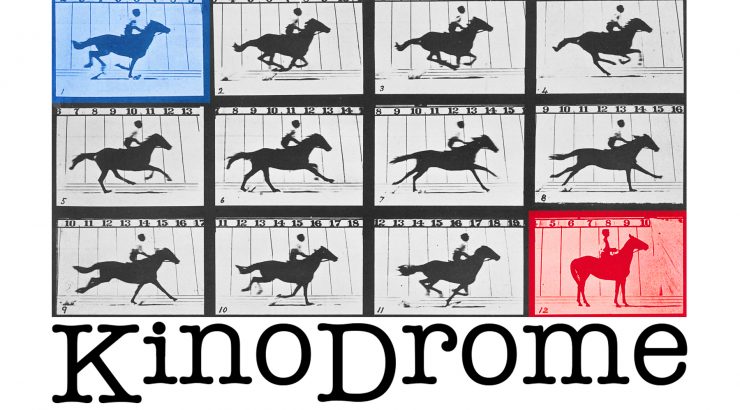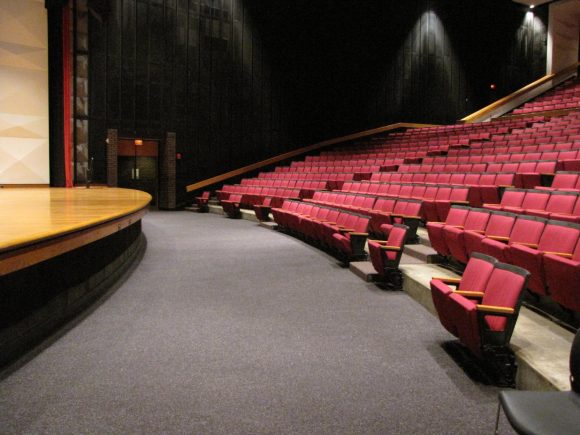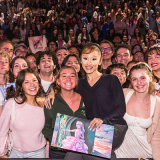
The Importance of Film Festivals and Public Shows Guest Writer: Branislav "Bruno" Tatalovic (MFA/FTP '09)
May 1, 2018
I remember my very first film’s public show. It was in 2005 as part of the student thesis-festival at Cleveland State University. Together with my film school classmates – I organized a small film event, consisting of several thesis films from our final production class at CSU’s film program. Our goal was to get together at the end of our 4-year college journey and to show our motion picture “babies” on the big screen – to our friends, families, and anyone else who appreciates short film art form. We were hoping that at least 50-100 people would show up. But, it went beyond our basic expectations. Two hundred people. Full auditorium! While watching my short film’s end-roll, I was trying to stay calm and prepare a short speech in my head. I don’t remember what I said from the stage, but I do remember that my first public show was one of those highly memorable moments in my film career. Four years later (in 2009), my Dodge Conservatory thesis film was shown on Folino Theater’s big screen: another groundbreaking moment, another big public show, and another memorable event.

Bruno Tatalovic ’09
Today, many years later and with close to 100 public exhibitions behind me, I still experience the same feeling every time my artistic content gets displayed on the big screen. It’s an excitement mixed with all kinds of unanswered questions. Is it going to play right? Will they understand the story? What is going to be their reaction to slightly controversial scenes? Will they applaud at the end? My point is: you make art to express yourself and you want others to experience your art, too. You don’t produce movies for yourself only. And the most exciting way to present your audio-visual content to others is: the big screen! There is something special about the theatrical experience and people’s group-perception of motion media. It’s a collective excitement and every film artist knows the feeling.
Submit your content to film festivals! The festivals should be an integral part of your personal PR strategy. This is super-important for film students who search for new avenues to show their art and enrich their CVs (resumes). An Official Selection is festivals’ term for public showing of your motion picture. The same applies to screenplays. Every established festival or screenplay contest is recognized by Internet Movie Database (IMDb) and if your content gets nominated for an award (or you win an award), it will be publicly recorded via IMDb system. It’s your filmic “worldwide digital resume”. When you apply for work in this industry or you pitch your new script – someone will search your credentials and look up your credits and achievements. The first link to look up is usually an IMDb page.
I’ve been teaching film studies and media production for several years as an assistant professor at Cuyahoga Community College in Ohio. At the end of each semester I point out to my students to create an account with one of two major festival submission platforms (Withoutabox or FilmFreeway). It’s free and you can upload your best work, search for festivals and submit anytime. If you’re a beginner filmmaker, evaluate your content and search for those festivals and contests that closely match your film’s (or script’s) genre, sub-genre, and story. If your content is very experimental and “different”, find appropriate festivals that accept such a content. If your budget prevents you from sending it to numerous festivals, you must be very selective and pick the right ones.

Kinodrome Venue
Being a guest and an Official Selection artist, and later an invited presenter, guest-lecturer, and board member at various national and international festivals, I was able to observe and learn the film festival framework. This year (2018), together with my academic friends and several film enthusiasts, I’m organizing my first annual “Kinodrome: an International Motion Picture & Screenwriting Festival”, geared towards film students, independent short-content filmmakers, and arthouse film artists. This “niche event” accepts ultra-short films, short films, experimental and music video, documentary shorts, and TV/web content. In addition to audio-visual media, the festival calls for: short, feature-length, and series-pilot screenplays. KinoDrome is open to any film and script genre or style, so long as it includes at least one of the following forms of creativity: very original concept, thought provoking themes, unusual subjects, or an openminded way of expression. The judges would like to see (or read) something fresh, strange, scary, provocative, shocking, weird, hilarious, or politically “incorrect” and nonconformist!
I’ve dedicated this mini-fest to one of my idols: Eadweard Muybridge. Muybridge once said that “…only photography has been able to divide human life into a series of moments, each of them has the value of a complete existence.” Thanks to him – the photography was able to move itself and create motion pictures. As a student, you spend months – writing, producing, shooting, and editing your motion picture. Now it’s time to put YOURSELF in motion and proudly “move your horses”, just as Muybridge did in 1878. The big screen is yours and YOU deserve 15 minutes of fame.

